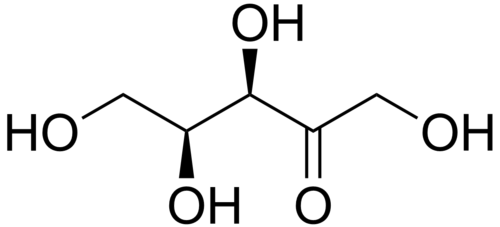What is pentosuria? It sounds a bit daunting doesn’t it? There’s not a lot of information out there about pentosuria, and it can often go overlooked or misdiagnosed. So we thought it would be good to take a quick minute and explain what pentosuria is, what effects it has on the body, and how to treat it.
So what is it? Pentosuria is simply the excretion of pentoses, which are sugar molecules with only five carbon atoms instead of the normal six, in the urine. Xylitol is one of these five carbon molecules. Five carbon sugars are found in the plant world where the standard building block is xylose.
According to Britannica.com, pentosuria is an inborn error of metabolism, characterized by the excessive urinary excretion of the sugar xylitol.
‘Inborn’ in this means not everyone has it; it’s a genetic problem found almost exclusively in persons of Ashkenazi Jewish descent.
‘Error of metabolism’ means that the enzymes needed to metabolize something are missing. In this case those missing are the ones needed to use five carbon sugars for energy production. In this hobbled pathway most five carbon sugars wind up as a form of xylose. This can get mistaken in screening lab tests as a sugar, like glucose, so people can get misdiagnosed as diabetic. And really that mistake is the only problem we know of with this condition. If you want more information there is a good one page summary at the British Medical Journal.
If you are not an Ashkenazi Jew, eating xylitol will not show up in your urine and it is not confused on any blood tests for glucose so there is no risk of being misdiagnosed as diabetic. Initially your body can’t deal with a lot of xylitol so it is not absorbed and causes loose watery stools and perhaps some cramping. If you persist and keep using it your body does adapt and pull out the enzymes needed to turn pentoses into energy, just like it does glucose. There is no reason for it to show up in your urine.
Even those with pentosuria can still use xylitol for the many health benefits that come along with it. Used as a nasal spray to keep the nose clean and minimize the allergic and infectious problems that begin there adds a minimal amount of xylitol to the body. Oral use for dental benefits adds much more, but none of this comes close to the amount we eat with a healthy fruit and vegetable diet.
Related Articles
Glycemic Response
Article by Beth Hubrich, R.D., and Lyn O’Brien Nabors July 18, 2006 Read the article in it’s original location here. In an effort to clarify the physiological impact of carbohydrates, the glycemic index (GI) concept was developed and published...
Medical Journals on Xylitol
Current management of pediatric acute otitis media E Leibovitz, A Broides, D Greenberg, N Newman – Expert review of anti-infective …, 2010 E Leibovitz, A Broides, D Greenberg, N Newman – Expert review of anti-infective …, 2010 Acute otitis...
Metabolic Response to Lactitol and Xylitol in Healthy Men
The American Journal of Clinical Nutrition, 1997 April;65(4):947-50. Natah SS, Hussien KR, Tuominen JA, Koivisto VA. Helsinki University Central Hospital, Department of Medicine, Finland. View original abstract here. Abstract Sugar alcohols are...
The Benefits of Xylitol
Many people have still not heard of or used xylitol, but the benefits of xylitol are simply undeniable. What is it that makes xylitol so useful? Xylitol is an all-natural sweetener that has been studied for decades. The conclusion of studies...






What are the alergic symptoms of Xylitol, can it cause severe pain affecting your whole body!
Allergic reactions are generally from protein substances and not simple carbohydrates like xylitol. If you eat a lot of it at one time it can cause major stomach cramps.